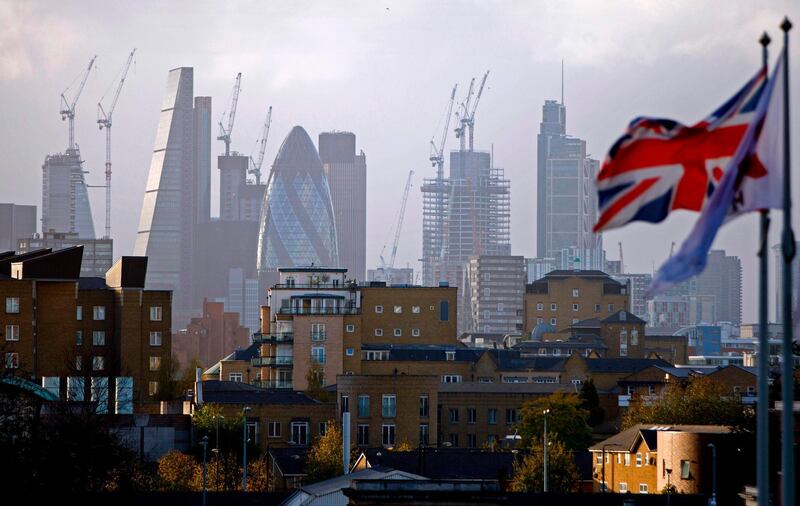The UK government plans to introduce a capital-gains tax on foreign buyers including those in the Arabian Gulf of commercial property, potentially disrupting the flow of money into London office buildings in the wake of Brexit.
The tax would be levied on gains made by non-residents on sales of all types of UK real estate, extending existing rules that apply only to homes, according to a consultation document published alongside the chancellor of the exchequer, or finance minister, Philip Hammond’s budget on Wednesday. Some institutional investors may be exempted from the tax changes, which the government aims to introduce by 2019.
“This seems likely to have significant implications for the investment market, particularly London,” said Walter Boettcher, the chief economist at Colliers International Group Inc. “There is talk of exemptions for pension funds, but we await clarity and indications on how the market might react.”
Overseas investors dominate London’s property market, lured by big buildings with long leases to major corporations and a stable legal environment. Foreign investors currently account for about 75 per cent of central-London investment, according to research by Colliers.
The UK is the largest commercial property market in Europe, attracting €26.7 billion (Dh 116.21bn) of investment in the first half of 2017 even after the Brexit vote, slightly more than the 26.1 billion euros invested in Germany, according to a report published by the broker Savills.
“We are deeply concerned that the chancellor’s announcement on capital gains tax, which will now apply to non-resident investors, will jeopardise much-needed investment,” said Ion Fletcher, the director of finance policy at the British Property Federation. “The UK is particularly good at attracting overseas investment capital, much of which goes towards regenerating our towns and cities.”
The London office market has a long track record of attracting capital from all over the world, including sovereign wealth funds including from the GCC, global pension funds and the world’s super-rich, many Arabs among them. Corporations from Hong Kong and China have been the dominant buyer of large buildings in the City of London district since the Brexit vote, with deals including the £1.15bn (Dh5.62bn) purchase of the Leadenhall building by CC Land Holdings and LKK Health Products’ £1.28bn acquisition of 20 Fenchurch Street.
____________
Read more:
The unusual places in London to buy a £1m penthouse
Pound's fall fails to fuel London luxury home sales
Goldman Sachs steps up post-Brexit plans with new Frankfurt offices
____________
“Unlike most other major jurisdictions, the UK does not currently exercise its full taxing rights where non-residents dispose of non-residential property,” the consultation document said. “This puts non-residents at an advantage over UK residents. It also drives the creation of complex offshore structures to hold property, which can facilitate avoidance.”
The new rules would also apply to investors buying companies that own buildings, as well as those directly purchasing assets, the consultation document shows. The planned change is due to come into effect in April 2019 and the tax will be levied on prices gains which occur after that date.
“Investors impacted could include private equity, real estate funds and wealthy individuals,” the JPMorgan analyst Tim Leckie wrote in a note to clients Thursday. “If implemented, this could drive a price correction through the market.”
UK real estate investment trusts that develop London offices, including Land Securities, British Land, Great Portland Estates and Derwent London, have been net sellers in the UK capital for several years, taking advantage of high prices and selling to overseas investors. British Land is in the process of offering its stake in the London headquarters of UBS for sale and Great Portland Estates expects to divest about £400 million of London property in the months ahead, the company said in a November 15 earnings statement.
“Longer term, this could be a positive for UK REITs, which would face less competition for assets and higher initial yields, boosting the evolution into an income-driven total return sector,” Mr Leckie said.






